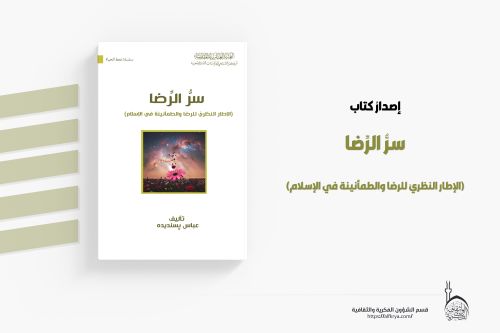

Grammar


Tenses


Present

Present Simple

Present Continuous

Present Perfect

Present Perfect Continuous


Past

Past Continuous

Past Perfect

Past Perfect Continuous

Past Simple


Future

Future Simple

Future Continuous

Future Perfect

Future Perfect Continuous

Passive and Active


Parts Of Speech


Nouns

Countable and uncountable nouns

Verbal nouns

Singular and Plural nouns

Proper nouns

Nouns gender

Nouns definition

Concrete nouns

Abstract nouns

Common nouns

Collective nouns

Definition Of Nouns


Verbs

Stative and dynamic verbs

Finite and nonfinite verbs

To be verbs

Transitive and intransitive verbs

Auxiliary verbs

Modal verbs

Regular and irregular verbs

Action verbs


Adverbs

Relative adverbs

Interrogative adverbs

Adverbs of time

Adverbs of place

Adverbs of reason

Adverbs of quantity

Adverbs of manner

Adverbs of frequency

Adverbs of affirmation


Adjectives

Quantitative adjective

Proper adjective

Possessive adjective

Numeral adjective

Interrogative adjective

Distributive adjective

Descriptive adjective

Demonstrative adjective


Pronouns

Subject pronoun

Relative pronoun

Reflexive pronoun

Reciprocal pronoun

Possessive pronoun

Personal pronoun

Interrogative pronoun

Indefinite pronoun

Emphatic pronoun

Distributive pronoun

Demonstrative pronoun


Pre Position


Preposition by function

Time preposition

Reason preposition

Possession preposition

Place preposition

Phrases preposition

Origin preposition

Measure preposition

Direction preposition

Contrast preposition

Agent preposition


Preposition by construction

Simple preposition

Phrase preposition

Double preposition

Compound preposition


Conjunctions

Subordinating conjunction

Correlative conjunction

Coordinating conjunction

Conjunctive adverbs


Interjections

Express calling interjection


Grammar Rules

Preference

Requests and offers

wishes

Be used to

Some and any

Could have done

Describing people

Giving advices

Possession

Comparative and superlative

Giving Reason

Making Suggestions

Apologizing

Forming questions

Since and for

Directions

Obligation

Adverbials

invitation

Articles

Imaginary condition

Zero conditional

First conditional

Second conditional

Third conditional

Reported speech


Linguistics

Phonetics

Phonology


Semantics


Pragmatics

Linguistics fields

Syntax

Morphology

Semantics

pragmatics

History

Writing

Grammar

Phonetics and Phonology

Semiotics


Reading Comprehension

Elementary

Intermediate

Advanced


Teaching Methods

Teaching Strategies
Colonial language policies
المؤلف:
المصدر:
A Handbook Of Varieties Of English Phonology
الجزء والصفحة:
920-52
2024-05-18
1148
Colonial language policies
Despite British colonial rule, colonial language policy was not simply pro-English and more complex than is often assumed (cf. Spencer 1971). Of course, the various colonial administrations tried to regulate official language use in their territories. But this involved usually three types of language, the local “tribal” mother tongues and the African lingua franca (usually Kiswahili, only occasionally Luganda) besides English, for local, “intraterritorial” and international communication respectively. Other agents played a role as well, like the churches, who had enormous influence not only on church language but also on school language. Even the three British mission societies (the Universities Mission to Central African, the Church Mission Society and the London Mission Society) did not use English for evangelization. The German missionary Krapf (in the services of the Church Mission Society) propagated a Latin spelling system for Kiswahili, which had been written in Arabic traditionally and maintained many Islamic connections, since he saw Kiswahili as “the most cultivated of dialects” and as a key to the inland languages. Protestant missions in general favored (in Martin Luther’s tradition) “the language of the people”, i.e. the ethnic languages, but also the African lingua franca, Kiswahili. The Catholic church was usually more orthodox, supporting not only Latin in its services but also Kiswahili in their preaching.
Even the British administration in Tanzania did not introduce English wholesale after taking over the former German colony. Rather, they admired the efficient German system, which according to a report from 1921 “made it possible to communicate in writing with every akida and village headman, and in turn to receive from him reports written in Kiswahili”.
Thus English was established only in élitist circles when the colonial powers tried to regulate communication within the administrative, legal and education system. The considerations summarized in a report by the Phelps-Stokes Fund (cf. Schmied 1991: 15) led to a basically trilingual language policy with the ethnic “vernacular” for local communication and basic education, Kiswahili in ethnically mixed centres and English for the highest functions in administration, law and education. This led to the foundation of the Interterritorial Language Committee in 1929, which developed into the East African Swahili Committee later, responsible for standardisation, orthography reform and expansion on the basis of the Zanzibar variety KiUnguja (and not the KiMvita of Mombasa). English was the language of instruction mainly in the few prestigious secondary schools, e.g. in King’s College, Budo, Uganda, the school for chiefs’ sons in Tabora or Alliance High in Nairobi, and of course in the first East African university, Makerere (founded as a Technical School in 1922 and as a University College in 1949).
It is important to remember that colonial language policies did not favor English, or other European languages, wholesale, but established a “trifocal” or trilingual system with (a) English as the elite and international language, (b) the regional lingua franca and (c) the “tribal” languages or “vernaculars” for local communication. The expansion of English down the social hierarchy began mainly at the end of colonial rule with the democratization and expansion of education that was to prepare Africans for independence (cf. Schmied 1991: 18). After independence, surprisingly few changes occurred; although lip-service was usually paid to African languages. Only Tanzania made great progress towards expanding the functions of Kiswahili at the expense of English and local African languages.















 قسم الشؤون الفكرية يصدر مجموعة قصصية بعنوان (قلوب بلا مأوى)
قسم الشؤون الفكرية يصدر مجموعة قصصية بعنوان (قلوب بلا مأوى) قسم الشؤون الفكرية يصدر مجموعة قصصية بعنوان (قلوب بلا مأوى)
قسم الشؤون الفكرية يصدر مجموعة قصصية بعنوان (قلوب بلا مأوى) قسم الشؤون الفكرية يصدر كتاب (سر الرضا) ضمن سلسلة (نمط الحياة)
قسم الشؤون الفكرية يصدر كتاب (سر الرضا) ضمن سلسلة (نمط الحياة)

















